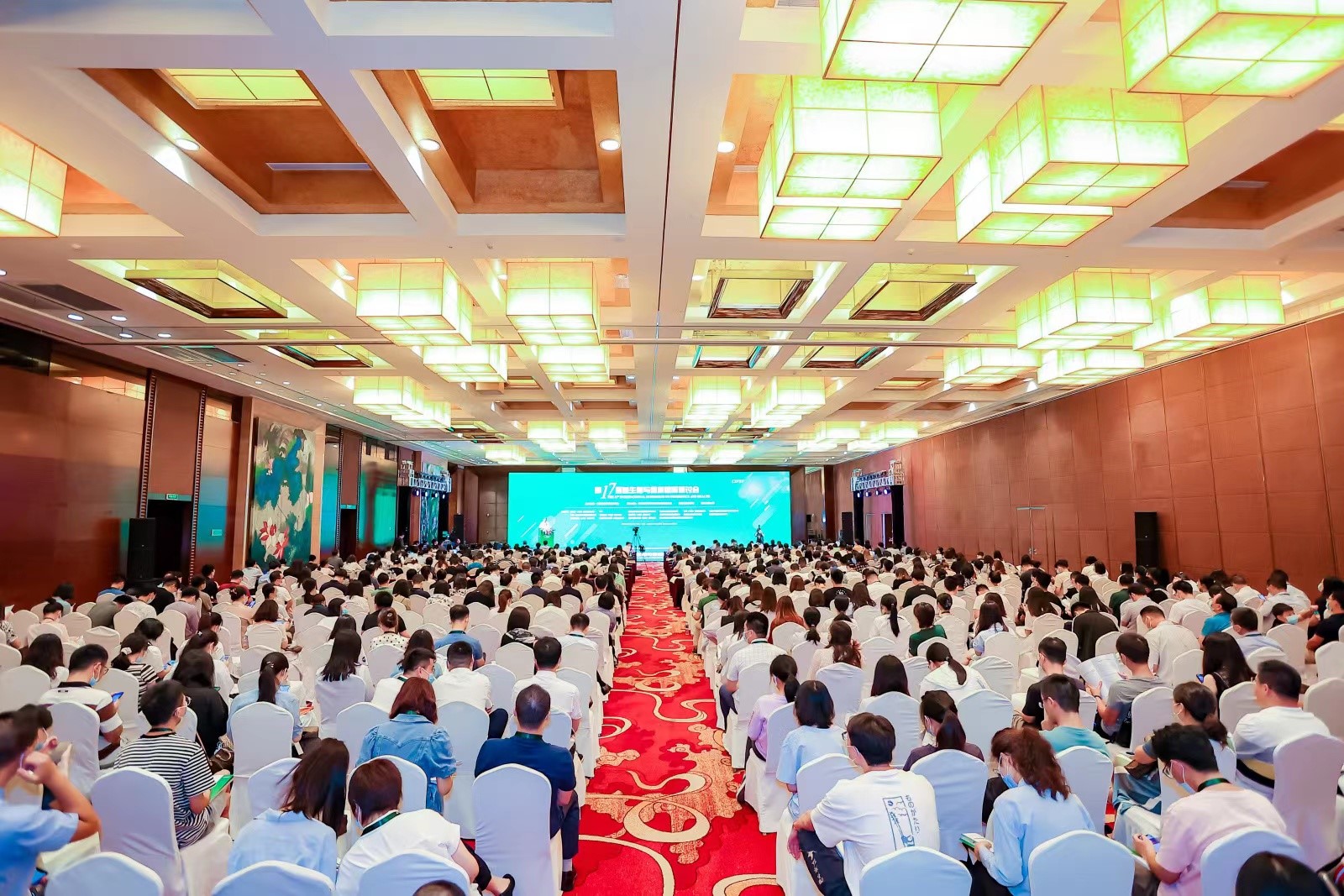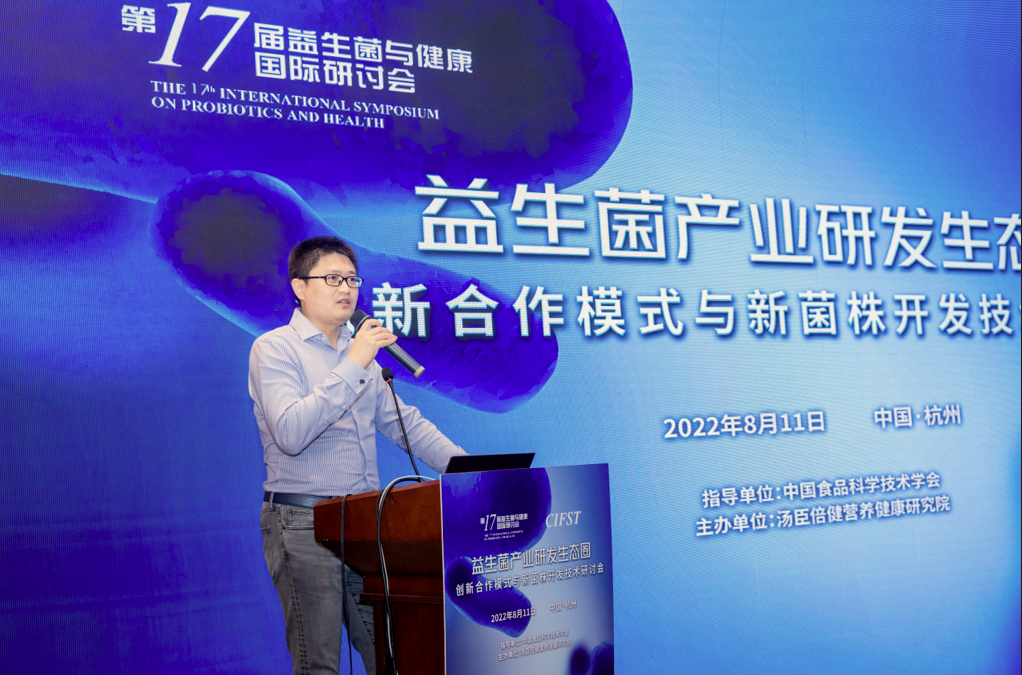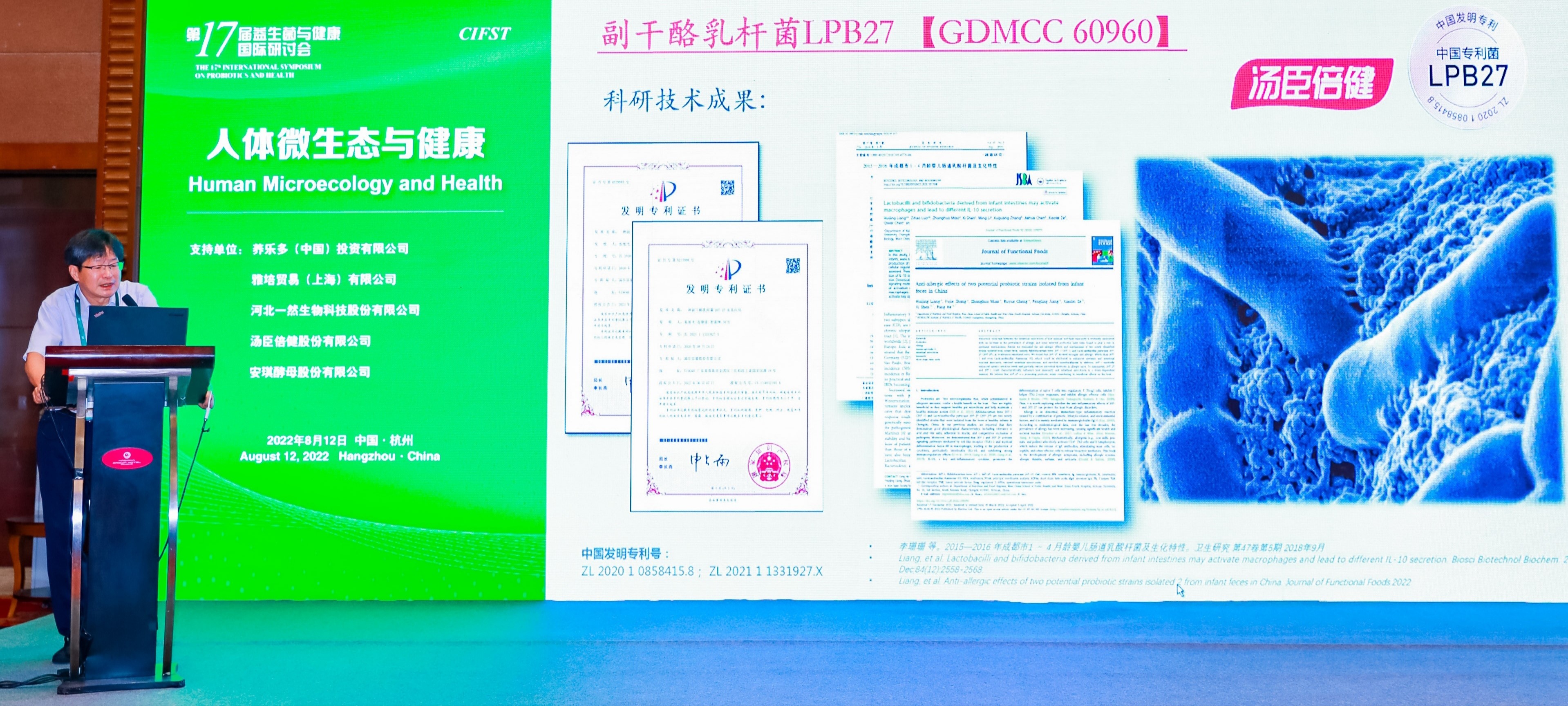

China's local probiotics family welcomes another new member. With 7 years of strenuous effort, Lactobacillus Paracasei LPB27, a fine intestinal strain originated from healthy Chinese infants, sees the light of day. Co-developed by BYHEALTH Nutrition and Health Research Institute, West China School of Public Health and other influential institutes, and Life-Space Global Center for Micro-ecology, the strain has become a high profile in the industry, at home or abroad, by virtue of the potential of health promotion regarding immunoregulation, increase of intestinal probiotics, etc. There is a growing consensus in the industry that a constant stream of breakthroughs in the development of fine strains will ensure sustainability of Chinese probiotics industry with more healthy options for the Chinese population.
Seven years of hard work paid off - BYHEALTH’s success in unveiling “local strain” for Chinese people

Concurrent with the 17th International Symposium on Probiotics and Health lately hosted is BYHEALTH’s technical seminar on innovation of cooperation mode and new strain development, with a view to boosting probiotics R&D ecosystem. At the seminar, Dr. Zhang Xuguang, Executive President of the BYHEALTH Institute of Nutrition & Health, Research Fellow (Part-time) of the Shanghai Institute of Nutrition and Health, Chinese Academy of Sciences and Visiting Professor of Shenzhen University, premiered the company’s own technical finding in indigenous strain development - Lactobacillus Paracasei LPB27.

With presence in a host of famous journals and periodicals, such as Biosescience, Biotechnology, and Biochemistry and Journal of Functional Foods, the strain has been granted two national invention patents* and brought into fruition. After rounds of in vitro and vivo, results show that LPB27 is resistant to gastric acid and cholate and easily colonized in intestinal tract, with all manner of health promotion features, improvement of inflammation, alleviation of IgE-mediated allergy, and surge of intestinal probiotics, to name a few. Therefore, it is comparable to world-renowned strains in immunoregulation.
It should be noted that LPB27 is an“indigenous strain”of Chinese descent. Allegedly China is a late starter in probiotics industry, with core technologies heavily reliant on foreign leading companies. Over 85% of strains that work in probiotics end products available on market are sourced from overseas*. Owing to high technical barriers in strain development with exacting requirements for technology, time and resources invested, “lack of innate growth drivers” is a perennial problem confronting China’s probiotics industry. As the saying goes that personality is shaped by the environment, inhabitants from diverse regions, who vary by diet, environment and metabolism, see wide disparities in composition of intestinal microorganisms. In this sense, “indigenous strain” carries weight with consumers. Catering to health requirements of the Chinese population, it is unanimously agreed in the industry to grapple with an indigenous strain with intellectual property and proprietary rights.
Speaking at the seminar, Chen Zheng, Secretary-General of the Chinese Institute of Food Science and Technology, ascribed the diversification of the probiotics industry, a fundamentally tech industry, to concerted effort in technology and industry.
As a leading VDS brand and model enterprise, BYHEALTH preceded others in making a foray into probiotics 7 years earlier. In collaboration with West China School of Public Health and other heavyweights, the company spent 7 years screening strains from Chinese infant strain bank through biological property research, whole genome sequencing and analysis, functional verification, safety research, etc. Out of 265 infant-only strains, fine intestinal strain sourced from naturally born and exclusively breastfed infants ultimately stood out, which is due for commercialization as a fresh health option for the Chinese people.
Enduring commitment to long-lasting and costly indigenous strain development
Elaborating on the arduous research & development of strains at the seminar, He Fang, Professor of the West China School of Public Health, said, “China’s probiotics industry was then in embryo. The majority of market was monopolized by foreign strains. It was a daunting challenge to make any breakthroughs. Despite many technical barriers and such difficulties as infant sampling and screening in early development, we finally attained the very fine strain.” Starting from scratch, the commercialization of the good probiotics is an epitome of the impressive transfer of Chinese scientific research achievements with depth, quality and speed.

Mr. Zhang added, “The indigenous development of probiotics is demanding on an enterprise’s comprehensive strength, for high technical barrier, long period and prohibitive cost of manpower and materials. Built on its world-leading industry-university-research innovation platform--BYHEALTH Institute of Nutrition & Health, BYHEALTH performed an exhaustive and systemic study on new strains from facets of strain bank setup, fine strain screening, genetic sequencing, bioinformatics analysis, functional assessment, mechanism research, clinical trial, fermentation technology, process and quality system, testing technology and standard research, etc.
Amidst strain development, R&D professionals attached great importance to setup of a high-quality strain bank. Some studies suggest that the colonization of intestinal strains in infancy can spark maturity of the immune system, which is of vital significance to their health. Thus, BYHEALTH scientific research team adopted a draconian screening process, and only 1-4 month old healthy infants with 37-42 weeks of gestation and birth weight of 2,500-4,000g were included into the strain bank.
Movement towards a tech powerhouse through implementation of “science-based nutrition" strategy
In the wake of PCC1 and NAD+ anti-aging research results delivered in recent years, BYHEALTH is one step closer towards fulfillment of its vision with the groundbreaking self-developed probiotic strain. In earlier 2022, BYHEALTH Chairman Liang Yunchao announced the company’s vision: transformation towards a tech powerhouse. Apart from proposing the “science-based nutrition” strategy, the company has since made continuous effort on innovation and research & development, precisely development of patented ingredients and formulas for standing out in the competition with distinctive advantages and transfer of core technologies into competitive products.
Under the guide of the “science-based nutrition” strategy, BYHEALTH plans to dig deep into probiotics development and commercialization of new indigenous strains in China with greater input of tech and manpower resources, contributing to prosperity of the nutrition and health industry.
* Patent No.: ZL 2020 1 0858415.8 ZL 2021 1 1331927.X
* Excerpted from the 2021 Top 10 Concerns of Development in China’s Probiotics Industry, Journal of Chinese Institute of Food Science and Technology